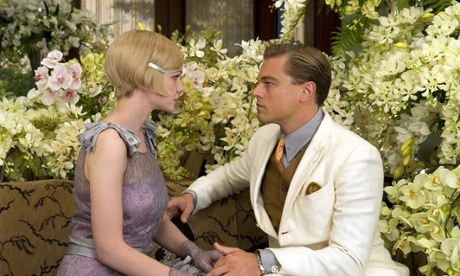
To say money will talk when it comes to tonight’s 2014 Australian Academy of Cinema and Television Arts awards would be an understatement. Since rebranding from the AFI Awards three years ago, the Aactas have awarded their Best Film prize to the highest-grossing Australian films in both 2011 and 2012.
With Baz Luhrmann’s The Great Gatsby nominated 14 times in 13 categories – you can see the nominations in full here – and having already won six, plus a bonus award for its visual effects, this year appears to be headed the same way.
This is in spite of some truly compelling homegrown productions. Nominated in six categories, Ivan Sen’s Mystery Road is the underdog’s pick. The tense, socially conscious Outback noir looks like a world-class production, as convincing in its red-soil grittiness as Gatsby was in its entertainingly outrageous extravagance.
Sen directed, wrote, edited, scored, and shot the film with breathtaking flair, yet is unlikely to receive recognition for one of the country’s best films in years. Mystery Road made a fraction of what Gatsby did in cinemas, but was watched on ABC1 on Sunday night by over half a million people.
The Aactas even failed to nominate its Indigenous star, Aaron Pedersen, instead opting to nominate noted non-Australian Leonardo DiCaprio for best lead actor, as well as veteran Hugo Weaving in the same category for a 15-minute berth in three-hour omnibus The Turning.
DiCaprio and English co-star Carey Mulligan are eligible in the acting categories here because AACTA guidelines require only that they be chosen by the entrant, and that they be male or female, and human. While the films must be pursuant to the Income Tax Assessment Act 1997's outline of "significant Australian content", the actors themselves don't.
The nominations read in a way that betrays the Aacta's preference for star power, weaselling categories to fit in as many notables as possible, extending as far as their ludicrous International Aactas, held in Los Angeles, which exist solely as celebrity flypaper.
The Turning, adapted from the Tim Winton short story collection, is the film most likely to snatch victory from the jaws of Hollywood money. Directed by and starring an array of well-known Australians, the film once seemed like a sure winner, combining commercial success and artistic flair. While the film isn’t wall-to-wall brilliant, it’s a unique showcase for up-and-coming Australian talent.
Among the other major nominees is the charming picture The Rocket, submitted to this year’s Academy Awards for best foreign language film. Unlike last year’s phenomenal Lore, The Rocket failed to be shortlisted, but has racked up nominations here for best film, director, and some fine performances – as with Gatsby, the non-Australian performers are eligible here – and technical credits in the tale of a Laotian family displaced by dam construction, from Australian writer/director Kim Mordaunt.
In 2011, smaller films scooped up awards alongside Red Dog, but 2012 saw The Sapphires sweep almost every category in which it was nominated. Part of the problem is how few Australian films are widely released in cinemas anymore; other nominees including Christos Tsiolkas adaptation Dead Europe, surfing chronicle Drift, and Indigenous drama Satellite Boy flashed in and out of theatres. You could blink and miss them. At what point do we demand that cinema chains meet Australian content quotas as commercial TV networks must?
Since rebranding from the AFIs in 2011, the Aactas have also given out awards for television – and the small screen has proven to be far more competitive. The drama nominees – Wentworth, Redfern Now, Offspring, and Serangoon Road – are all at least solid choices. The only repeat nominee is Redfern Now, a brilliant, vital series which would be more than deserving of the recognition.
In the comedy arena, expect a tight race between internationally acclaimed sitcom Please Like Me, class-clash comedy Upper Middle Bogan, and Australia’s finest satire in the form of Shaun Micallef’s Mad as Hell. Jane Campion’s Top of the Lake is already poised as the best telefeature, miniseries or short run series favourite after winning two technical awards yesterday.
The television nominees are far more egalitarian by nature of transmission, but the nominated shows have viewerships in the millions. The Aactas have quite starkly highlighted the disparity between audiences for the each medium; what is it going to take to mobilise the Australian public to support smaller Australian films in the way they now do Australian TV and music?
If The Great Gatsby is as successful in the major ceremony as it was at the technical awards, it’s hard to say what the point will have been. The best thing the Aactas can do is highlight underseen productions; helping raise the profiles of emerging talent and allowing them to become the Luhrmanns of tomorrow. Unfortunately, it seems likely they will have to remain in his shadow.
• The 3rd Aacta Awards will air on Network Ten on Thursday at 8.30pm. It will encore on Foxtel's Arena channel at 7.30pm on Saturday.

